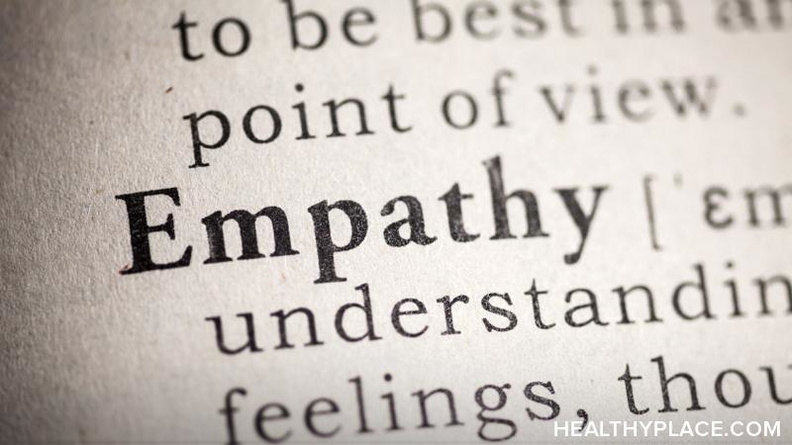The Importance of Developing Empathy

To all those reading this blog: if there’s one thing I’d like you to take away from it, it’s how important developing empathy really is. This is something that is applicable far beyond just anxiety – I would argue that it’s essential if you want to be anything resembling a decent human being in general. But because we are focusing on mental health, I will devote this time specifically to why being an empathetic person is so important to those who are struggling with mental illness.
Why Developing Empathy Is Important
If you’ve read my blog in the past, most of this will sound familiar to you, but it’s important enough to bear repeating again and again. With relatively few exceptions, mental illness is invisible. If someone discloses to you that they have anxiety, or depression, or any other mental illness, there are no visible scars you can verify to check the legitimacy of the diagnosis. You have to take the person at his or her word.
What’s more, though we can define most mental illnesses by diagnostic criteria applicable to all who suffer, there is still no guarantee that the symptoms of that illness will manifest in any sort of common way between two different people. So you have an anxiety disorder – what, really, does that mean? That tells you nothing of what makes you anxious, how debilitating the anxiety is, or the coping mechanisms necessary to keep in check.
These two factors – the invisibility of mental illness and the astonishing variety of symptoms and severity – means that, if you want to realistically interact with someone who’s mentally ill with anything resembling humanity, developing empathy is paramount. You need to be able to take people at their word.
How to Develop Empathy
It takes a lot more than a couple of hundred words to teach empathy development, so I’m not even going to try going into great detail. But I do want to spend time on the issues I believe to be the most important.
Basically, empathy demands that you recognize the validity of someone else’s feelings. To add to that – it means recognizing the validity of someone else’s feelings even if they’re fundamentally different from your own. Even if, try as you might, you can’t understand them. This is huge. Empathy doesn’t require you to understand – it requires you to be accepting even if you can’t understand. In a way, that’s much harder.
Empathy is not about you – it’s about other people, and recognizing their validity. To bring understanding into the equation destroys that because making it about understanding means you’re scrutinizing their feelings using your own criterion of intelligibility. That just isn’t empathy.
How does one develop empathy? You can do no better than to recognize the limitations of your own mind. Understand that there will be things that you cannot understand, but that doesn’t make them any less valid. What’s important is how the other person is feeling and doing whatever is necessary to support them, in spite of those limitations. This isn’t necessarily the easiest thing in the world. But when you’re around someone who’s mentally ill, this is what you need to do, full stop.
Do you have ideas on developing empathy?
APA Reference
DeSalvo, T.
(2019, May 29). The Importance of Developing Empathy, HealthyPlace. Retrieved
on 2026, February 24 from https://www.healthyplace.com/blogs/anxiety-schmanxiety/2019/5/the-importance-of-developing-empathy